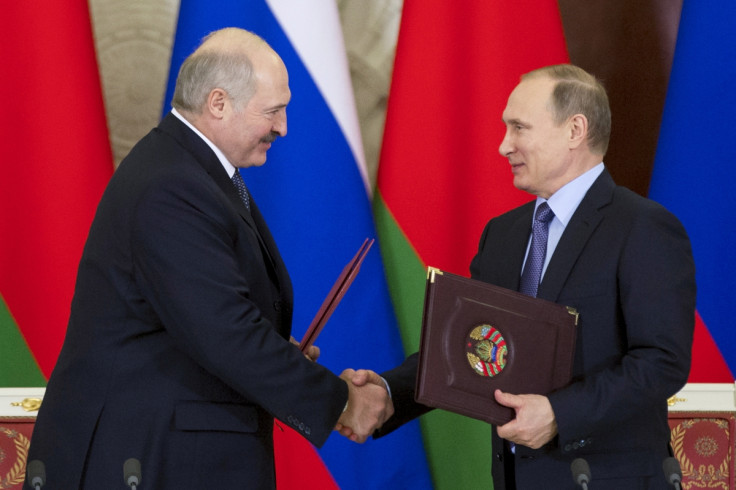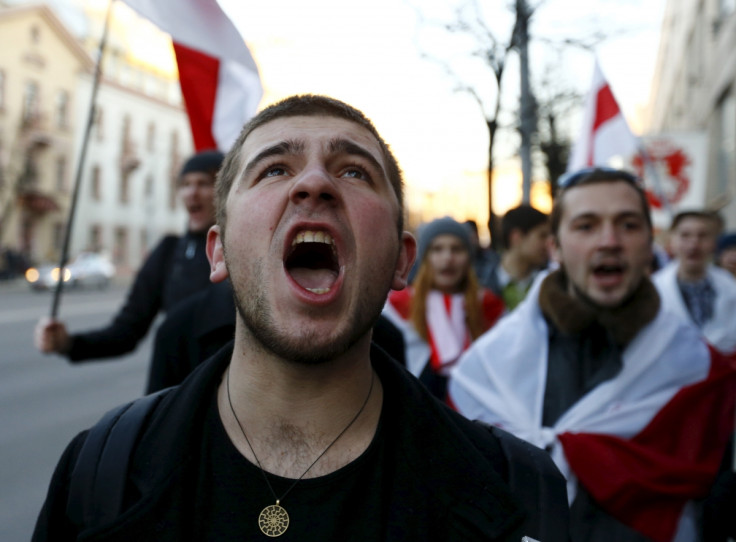Belarus dissident slams Brussels for inaction against Europe's last dictator Alexander Lukashenko

A prominent dissident from Belarus who was jailed and tortured for opposing the country's president has criticised the EU's stance on Alexander Lukashenko and said that Brussels is not living up to European values of democracy in tackling the man dubbed 'the last dictator in Europe'.
Andrei Sannikov was imprisoned in the capital Minsk after he ran in the country's presidential elections in 2010 during a campaign which saw him garner the largest amount of support among opposition candidates.
EU restrictions on Lukashenko and his officials imposed in March 2012 paved the way for his release a month later but Sannikov expressed dismay at the EU's financial and increasing diplomatic support for Lukashenko over the last few months.
"If you don't deal with petty dictators Lukashenko, what will you do about Moscow and the Kremlin? We are fighting for the principles of the European Union and sometimes we don't see support from those who are supposed to be guardians of European values," he told an audience at the Henry Jackson think-tank in London.
"Brussels could have taken a different position and challenged the legitimacy of Lukashenko. Belarus is not a basket case but it is a basket case is in the minds of politicians in Brussels."
Charter 97

Sannikov, a founder of the pro-democracy movement Charter 97, said EU leaders were showing "reluctance" adding that: "We are fighting for the values that Europe is built on and we legitimately require support".
His comments, made as he publicised the release of memoir My Story where the Belarusian former deputy foreign minister outlines the country's democracy movement, come amid a struggle by the European Union for influence in the Russian-speaking space.
A non-binding referendum in the Netherlands this week rejected a closer trade deal between Ukraine and Brussels, which will be a boost to Moscow in its ambitions to strengthen its hand, and weaken the EU's, in the region.
He said of his time in the notorious KGB prison Amerikanka: "I can quote an Afghan inmate, he said that of course it was more modern than a Taliban prison but the attitude was much worse."
Since the last presidential elections in 2015, the United Nations Special Rapporteur Miklos Haraszti said that human rights activists, opposition leaders and other citizens have been harassed, adding that the "dismal state of human rights has remained unchanged in the country".
Strategically important

However Haraszti said that the parliamentary elections in 2016 "will also be an opportunity for the authorities to attest of their commitment to reform".
A poll in March showed three out of four people in the country would not vote for Lukashenko due to a worsening economic situation, according to the exiled Independent Institute of Socio-Economic and Political Studies, which found that the average salary has slumped from $195 (£135; €171) in December 2015 to only $147 (£102; €129) in March 2016.
Belarus is strategically important and is the geographical and historical meeting point between Russia and Ukraine. Lukashenko won 83% of the vote in the presidential ballot in 2015 which was criticised by observers from the Organization for Security and Cooperation in Europe (OSCE).
However the German foreign minister Frank-Walter Steinmeier commended the release of political prisoners before the vote but Lukashenko is a shrewd operator who has played Brussels against Moscow and managed to raise his standing with the EU by appearing to distance himself from Russia.
Sannikov, who received political asylum in the UK and was awarded the International Bruno Kreisky Prize in 2005 for human rights protection, told IBTimes UK: "I am not very optimistic about the EU, but I am optimistic about the outcome because eventually we will gain freedom and democracy and it's in the interest of Europe to make sure that other dictators do not appear in the former Soviet Union."
© Copyright IBTimes 2025. All rights reserved.






















